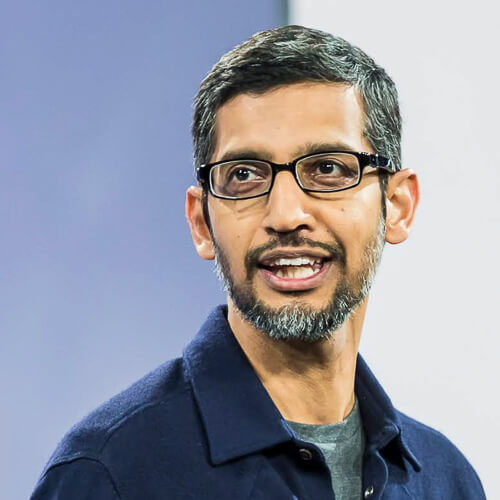Christmas shopping boosted Google's ad revenues by 23%, its best quarter in years, but it still has a way to go to turn a profit out of the cloud.

Call Sundar Pichai the Comeback Kid.
Google's revenues may have suffered their first-ever decline of 2% in the second quarter, but they've more than made up for it now.
It's a game of two halves, and one of them includes Christmas.
And after a holiday shopping season dominated by e-commerce, the search engine's owner Alphabet has blasted through expectations to register one of its strongest quarters in years — with its revenue up 23%.
Figure 1:  Ad break: Pandemic hit retailers flocked to Google's ad platform, boosting earnings and giving Pichai something to smile about. (Source: LightReading)
Ad break: Pandemic hit retailers flocked to Google's ad platform, boosting earnings and giving Pichai something to smile about. (Source: LightReading)
The $56.9 billion in fourth-quarter revenue beat analysts' predictions by $3.8 billion, continuing a theme of strong earnings from big tech.
In a conference call, Pichai told analysts he was proud so many people used his company's products to "stay informed, connected and comforted during uncertain times".
The full-year revenue of the four largest US companies – Google, Microsoft, Amazon, and Apple – has surpassed $1 trillion for the first time.
Only 16 countries have a bigger GDP than that, points out investor Charlie Bilello on Twitter.
Advertising, including from YouTube, made up 81% of this.
Siri, make us a cloud company
Adverts are a surer bet right now than clouds in Menlo Park.
Reporting performance for the cloud division for the first time, Pinchai's attempt to catch up with Amazon Web Services and second-placed Microsoft Azure still posts an operating loss of $1.24 billion in the most recent quarter and $5.6 billion for the full year.
There's an analogy here.
Amazon Web Services is an operating income cash cow that subsidizes Amazon's retail services, where margins are pretty miserly.
AWS produced $13.53 billion in income in 2020, compared to Amazon retail's $9.37 billion.
(Which, incidentally, is why AWS head Andy Jassy is taking over for Jeff Bezos. And bear in mind Satya Nadella ran Azure before he took over Microsoft's top job from Steve Ballmer.)
For Google, it's the ad business that subsidizes its efforts to launch into the cloud.
But remember too it took AWS nearly a decade to turn a profit for the first time.
Clouds soaring
Cloud is for tech giants what tournaments were for mediaeval knights: where they all meet to compete.
Altogether, Amazon continues to command 32-34% of the cloud market.
Microsoft has doubled its cloud market share since the start of 2017, finally reaching the 20% milestone at the end of the fourth quarter.
Microsoft, Google, and Alibaba have steadily gained market share in the last four years, mostly by chipping away at smaller cloud providers while Amazon's market share has stayed pretty constant.
It's a close-fought market, and you can see why: It's taken just nine quarters for the global cloud market to double in size.
The $37 billion of global enterprise spending on cloud infrastructure services in the fourth quarter is up 35% from a year before.
Even with AWS and Microsoft taken out of the picture, "the rest of the market is still growing by over 30% per year," meaning there are growth opportunities a-plenty for smaller providers too, says John Dinsdale, an analyst at Synergy Research Group.
Other Bets
Meanwhile, what Alphabet euphemistically calls its Other Bets, a rogues' gallery comprising the X lab, Waymo, and other non-Google companies, took in $657 million in 2020 but altogether lost a staggering $4.48 billion during the year.
And with regulatory and political trouble never very far afield, Google has set aside $3.8 million, including $2.6 million in back pay, to at least settle allegations it disadvantaged women and Asian workers by systemic pay and hiring discrimination.
The US Department of Labor announced the settlement on Monday, though Google denies discrimination.
Related posts:
— Pádraig Belton, contributing editor special to Light Reading
About the Author(s)
You May Also Like











